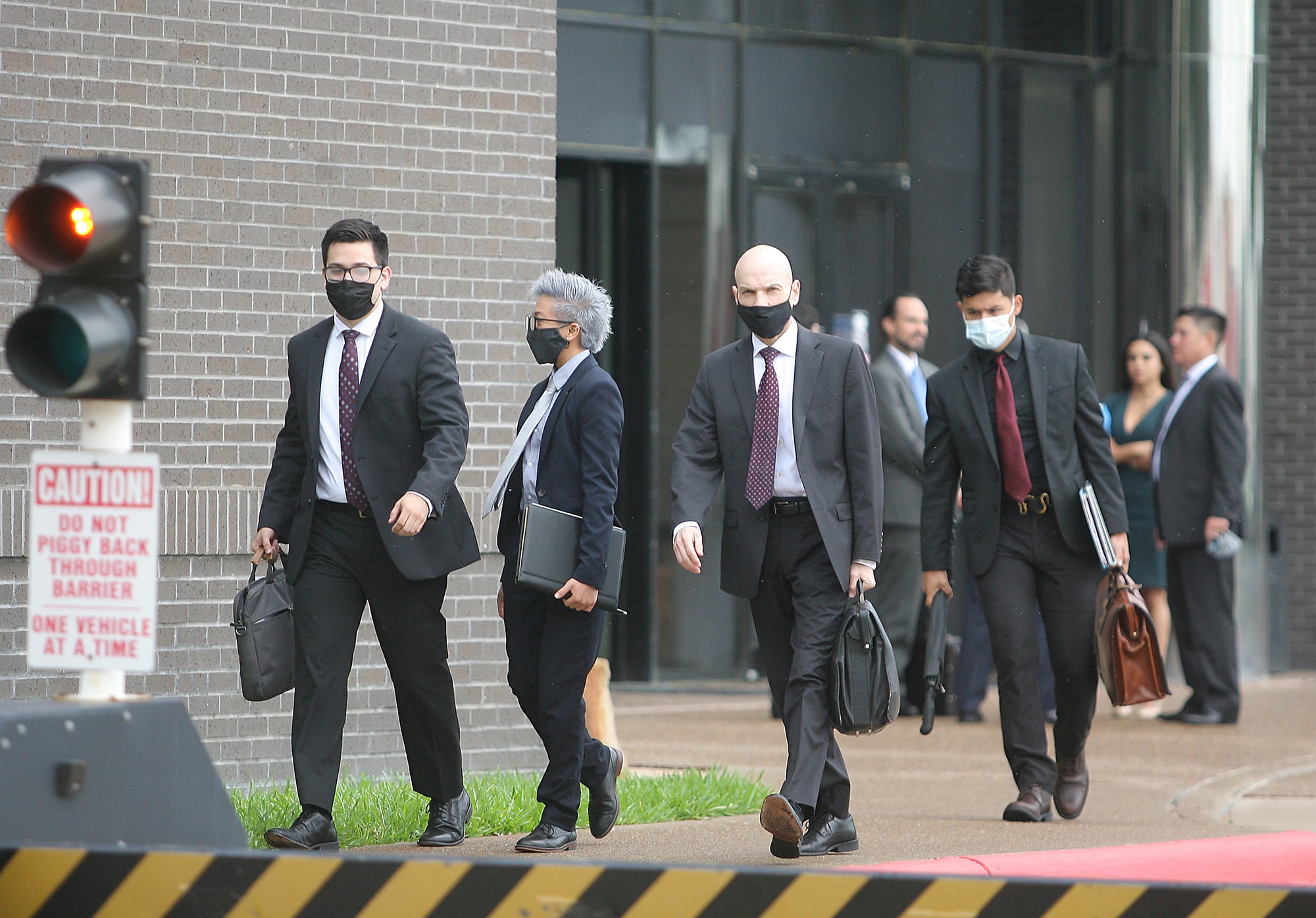
McALLEN — U.S District Judge Micaela Alvarez has run out of patience for further delays to the Weslaco water plant bribery trial, which has been on her docket since April 2019.
To that end, the federal judge was terse and quite to the point during a status conference held in her courtroom Monday morning on what should have been the day a jury was empaneled and opening statements were made.
“Why can’t we seem to get this case tried?” Alvarez asked prosecutors and defense attorneys at the top of the hearing.
“I am very frustrated,” she said.
The latest delay in trying the case came after one of the two defendants remaining in the case recently suffered a medical issue that has his doctors concerned about him enduring a stressful situation so soon into his recovery.
Rircardo “Rick” Quintanilla, a Weslaco businessman, underwent open heart surgery earlier this spring. When prosecutors became aware of his health condition, they communicated to the court their expectation that Quintanilla’s defense team would request a temporary delay to the start of the trial.
But that didn’t happen. Instead, Alvarez called a status conference on May 24 in response to the government’s motion — a hearing during which she expressed her displeasure with the 11th hour delays and the lack of supporting documentation from Quintanilla’s attorneys.
“I do not like these last minute issues coming up,” Alvarez said then, before launching into a series of questions directed at Jaime Peña, one of two attorneys representing the recuperating Quintanilla.
Peña said he had been awaiting statements from Quintanilla’s doctors regarding his condition, but Alvarez admonished the attorney for failing to file a motion at all, even one stating that supporting documentation would be forthcoming.
The judge also said she would be disinclined to accept any late motions, but that didn’t stop Peña from filing one anyway — after the motion deadline had lapsed.
This one, at last, detailed Quintanilla’s medical condition, according to discussions held in open court.
But a portion of the document, which was filed with the court electronically, was corrupt, meaning Alvarez could not access it.
The judge made note of the technical error in an order begrudgingly handed down on June 2. And it was a fact she keyed in on during the discussion Monday, when Peña said he had been unaware of the upload error.
“We’re a small town, Mr. Peña,” Alvarez said, adding that he could have “sent someone over with a hard copy” of the doctors’ notes.
“I don’t want apologies,” she added when Peña attempted to apologize for the oversight.
Already, the trial — which Alvarez in May 2019 declared “complex” in order to stretch the latitudes allowed under the Speedy Trial Act of 1974 — has seen numerous delays far beyond what that designation would imply.
Some of the delays were due to the COVID-19 pandemic. At least one was due to the death of a key witness. But on Monday, Alvarez was visibly frustrated with the idea of allowing things to stall further.
So much so that she not only refused to entertain further delays from the defendants, but she also refused to allow much latitude to prosecutors, including a trial attorney from the Justice Department’s Public Integrity Division out of Washington, D.C.
That prosecutor, Marco Palmieri, indicated that he had a scheduling conflict with another trial he will be prosecuting in October in Missouri.
When Palmieri said that that trial may take up to seven weeks, Alvarez said, “OK, we’re not waiting that long.”
“Mr. Lopez, you and co-counsel can bring someone else in,” Alvarez said, addressing Assistant U.S. Attorney Roberto “Bobby” Lopez Jr., the local prosecutor who has been overseeing the public corruption case.
Alvarez reset jury selection for Oct. 11 with opening statements expected to immediately follow.



